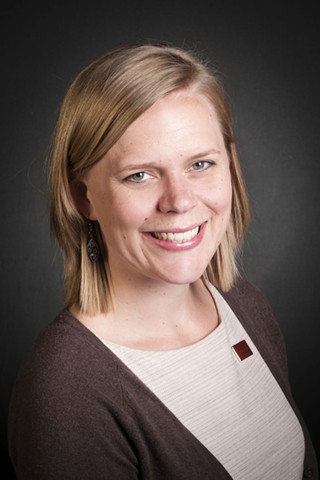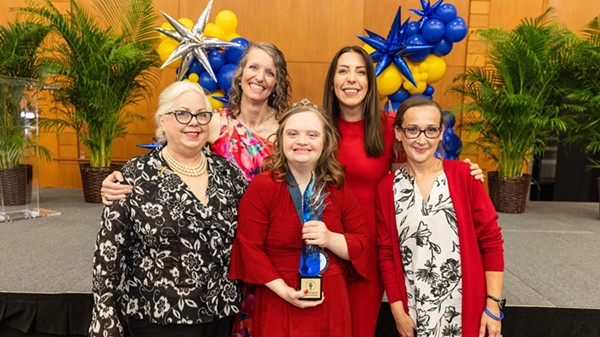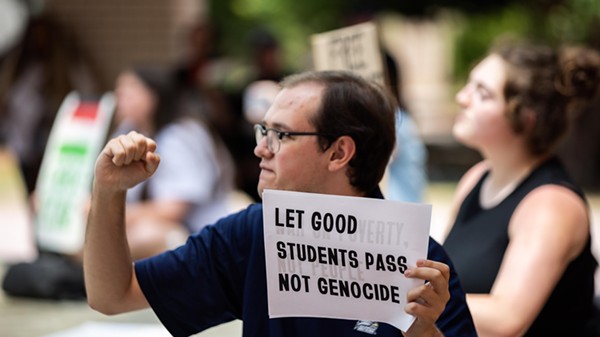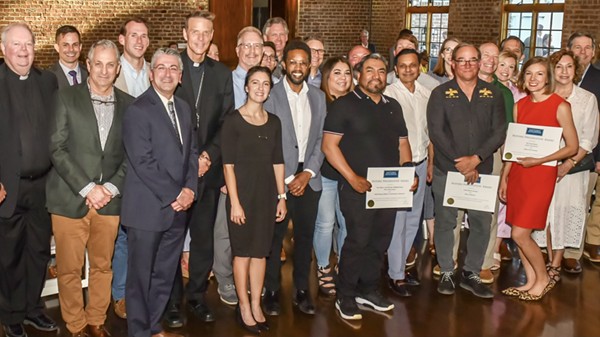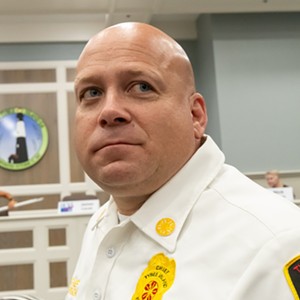ALL ACROSS AMERICA, our lauded institutions of higher education have begun their fall semesters, ushering in a new season of academia, adventure and the opportunity for my husband to spend the next four months complaining bitterly about Georgia Bulldogs coaching strategies.
While we may not have an SEC football team here in Savannah, this is a college town nonetheless. And that means there’s a whole new class to be schooled.
For Connect’s yearly College Issue, I usually like to dole out a bit of advice to the new kids, as I did manage to graduate from college and I did have a lot of issues. It is always my deepest hope that someone can benefit from the many valuable lessons I learned my freshman year:
• Even if your roommate is a World of Warcraft-obsessed sociopath who uses your brush and then lies about it though it’s obvious because your hair is hair-colored and hers is Manic Panic Voodoo Blue, it is not OK to replace her toothpaste with Preparation H. Especially if she sleeps with a knife.
• If you’re trying to shoplift a carton of cigarettes by sticking them down your pants leg, you’d better not be wearing short shorts. Actually, since the Georgia Board of Regents enacted a smoking ban on all public colleges last spring and both Armstrong State University and Savannah State are now officially entirely tobacco-free campuses, you should just stick to shoplifting candy and condoms.
• Should you be interested in gaining intimate knowledge of the encrusted ooze on the dorm bathroom floor, be sure to mix up a big tumbler of Southern Comfort with Dr. Pepper to celebrate passing your first biology mid-term.
Herm. Maybe I’m actually not the best person to give advice to college students.
Perhaps it’s best that I abdicate to the authority of Amy Ziezula, Assistant Dean of Student Integrity at Armstrong, who I’m quite positive never passed out in the planters outside the Chemistry building.
A former SUNY residence director and conduct officer at Georgia Southern, Ziezula serves as a kind of cool aunt to help students adjust to what may be their first extended time away from home. While most students hope to pattern their college careers in the vein of Real Genius rather than Van Wilder, some may need a bit of extra tutoring to guide them on the right track.
The Armstrong administration has figured out that if you want people to act like the kind of grown-ups that pay taxes and cover their faces when they sneeze, they must be treated as such, and Armstrong has taken a pro-active strategy with the newly-created Department of Student Integrity.
While part of Ziezula’s job is to administer disciplinary measures in the advent of delinquent academic behavior—don’t even think of plagiarizing your English essay or she will expel your cheating ass—her main task is to educate newbies on how not to fail at life.
“With this new department, we’ve created a way to educate faculty and students sbout what it means to act with civil behavior inside and outside of the classroom,” explains Ziezula.
On the scholarship front, 75 percent of college students admit to cheating at least once during their academic careers, and Ziezula has authored new materials for faculty on how to prevent and address dishonesty. But mostly she spends her time creating programs for students still learning to navigate the nebulous zones of society outside the comforts of home, where it might be perfectly fine to use someone else’s hairbrush.
She warns that the advent of social media has not made us any less passive-aggressive as a culture, and learning to handle confrontation can be tricky.
“Conflicts are going to arise,” counsels Ziezula. “If you’ve got a problem, actually talk to your roommate. Don’t tweet or text or leave a Post-it note because it can blow up into something else later.”
Especially if she sleeps with a knife.
Cultivating a climate of personal safety is also tantamount, and part of the intra-curricular education includes admonitions to be aware of one’s surroundings and to take your face out of your phone while walking around campus.
But by far one of the most pressing concerns for college administrators everywhere is the prevalence of sexual assault on American campuses. According to studies, one in five college women have reported a rape, and many are subjected to belittlement and dismissive attitudes by their schools while they watch their violators walk away with nary a mark on their permanent record, free to assault again.
This year, multiple federal Title IX complaints have been levied at some of the nation’s highest-ranking universities—including University of North Carolina, UC Berkeley, Dartmouth and Swarthmore—for their mistreatment of rape survivors and the mishandling of their cases.
At Columbia, a class action lawsuit was filed against the administration by 23 separate sexual assault victims, including visual arts major Emma Sulkowicz, who has channeled her anger into a powerful protest—and admirable senior thesis—by carrying around campus with her a mattress identical to the one on which she was raped.
The White House has created a task force to put pressure on colleges to protect students from sexual assault on campus and this summer the Senate introduced the Campus Accountability and Safety Act to hold schools accountable.
But task forces and legislation won’t change a damn thing unless the culture supports a rape-free climate.
A panelist at last year’s Women’s Empowerment Conference, Ziezula knows sexist, victim-blaming nonsense like “don’t wear a short skirt” or “that’s what you get for drinking a beer in a frat house” isn’t the answer. Starting this semester, Armstrong has joined hundreds of universities in implementing mandatory participation in EverFi’s Haven module, an online training that leads young men and women very clearly through the bad behaviors of sexual violence, harassment and stalking.
While some of its obvious messages are bound to inspire some eye-rolling, Ziezula says that one of Haven’s most valuable elements is how it empowers students to protect each other.
“Bystander intervention is very powerful,” she affirms. “We’re trying to teach students that it’s OK to do the right thing.”
The key word there is “try.” You can lead them to the moral compass, but it doesn’t mean they’ll point in the right direction—there’s always going to be some genius who looks at it and thinks whoa, this’d make a really cool bong!
The rest of you are probably pretty good kids, so good luck, study hard and keep your cute mug out of the papers.
At the very least, let’s see if we can have it end up here in The (Civil) Society Column and not the Police Blotter.

